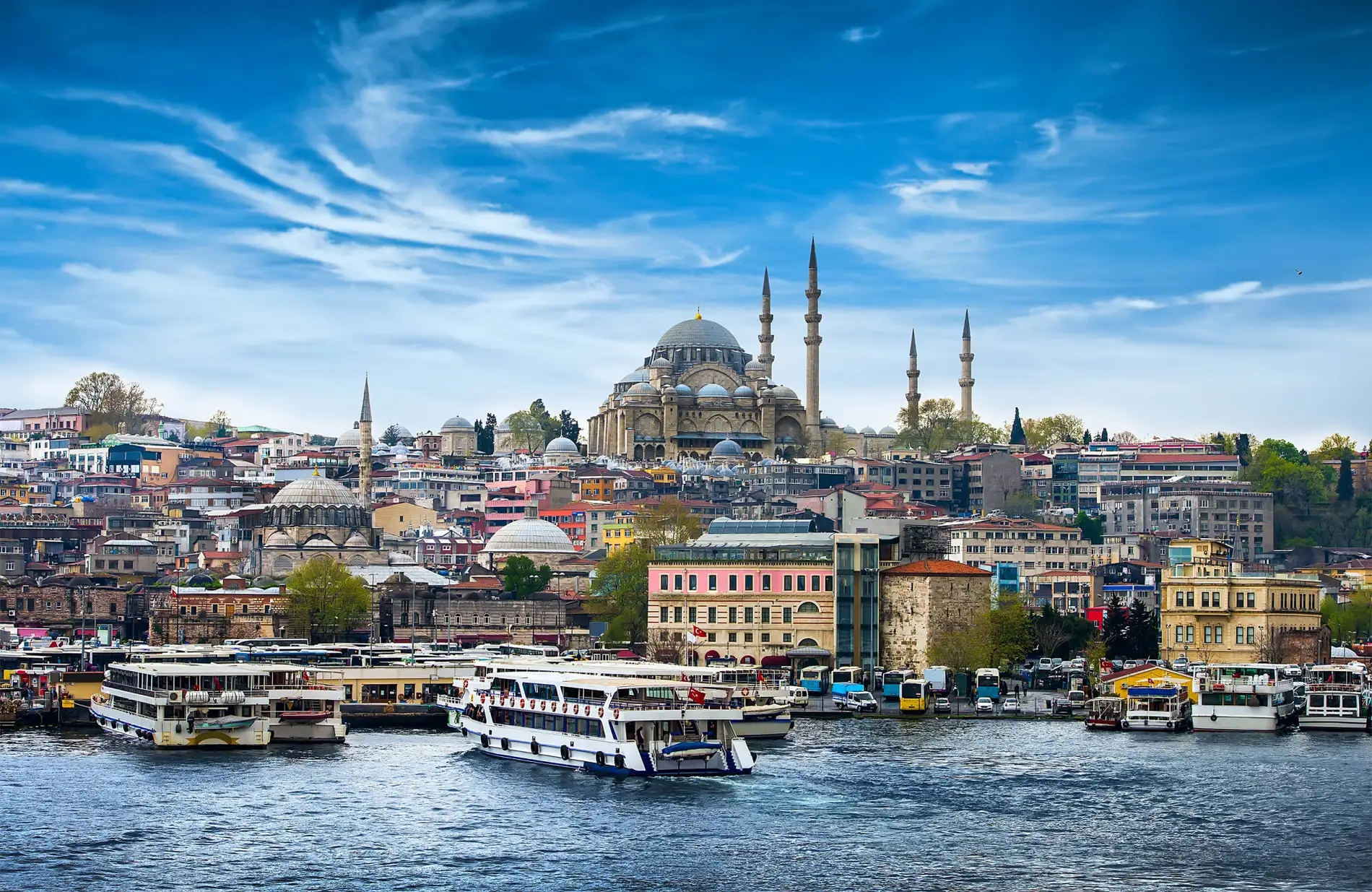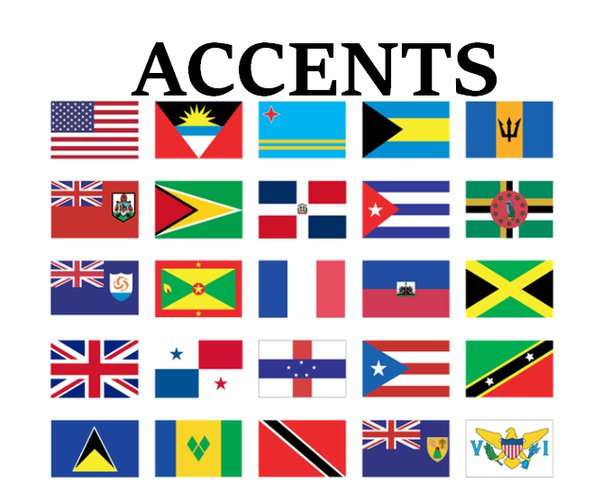If you want to work as a digital nomad from Istanbul, keep reading to find out all the information you need to make the most of your experience in this incredible city. With a diverse range of accommodation options, work environments, and experiences waiting to be explored, Istanbul is more than just a city—it’s an adventure for the remote worker. I have lived in Istanbul for over 4 years, and I’m here to guide you through everything you need to know.
Can I Work Remotely from Istanbul?
Yes, Istanbul is a fantastic place to work remotely. The city is well-equipped with modern infrastructure, fast internet connections, and a variety of coworking spaces designed to cater to the needs of digital nomads. Whether you prefer working from a café or a professional coworking space, Istanbul offers numerous options that fit various work styles. Additionally, the many activities available make it a stimulating environment for remote work.
Can I be a Digital Nomad in Istanbul?
Absolutely! Istanbul is increasingly becoming a destination for digital nomads. With an affordable cost of living, historic ruins, and a laid-back lifestyle, Istanbul attracts remote workers from all over the world. The local community of digital nomads is growing, offering plenty of opportunities to network, collaborate, and socialize. Whether you’re staying for a few weeks or a few months, Istanbul provides a nice mix of work and leisure that makes it an ideal spot for digital nomads.
Where is Istanbul, TR Located?
Istanbul is situated in the northwestern part of Turkey, straddling the Bosphorus Strait. This unique location places the city in both Europe and Asia, making it one of the few cities in the world that spans two continents. Istanbul’s strategic location has historically made it a significant cultural and commercial crossroads, influencing its diverse cultural landscape.
Is Istanbul Part of Europe or Asia?
Istanbul is part of both Europe and Asia, divided by the Bosphorus Strait. The European side, known for its historic districts and nightlife, is where most tourists and expats gravitate. The Asian side offers a more residential feel, with neighborhoods and less crowded attractions. This duality gives Istanbul a unique character, offering the best of both continents in one city.
What is the Best Way to Get to Istanbul from London?
The easiest and most efficient way to get to Istanbul from London is by air. Multiple direct flights operate daily between London’s airports and Istanbul’s main airports, Istanbul Airport (IST) and Sabiha Gökçen International Airport (SAW). The flight typically takes around four hours, making it a convenient option for those traveling from the UK. Upon arrival, you can take a taxi, shuttle, or public transportation to reach your accommodation in the city.
What’s the Closest Airport to Istanbul?
Istanbul has two major airports: Istanbul Airport (IST) and Sabiha Gökçen International Airport (SAW). Istanbul Airport, located on the European side, is the larger of the two and handles most international flights. Sabiha Gökçen, on the Asian side, is slightly smaller but still serves a significant number of domestic and international flights. Depending on where you’re staying in the city, either airport could be more convenient.
What Language is Spoken in Istanbul?
In Istanbul, Turkey, the primary language spoken is Turkish. Most locals are fluent in Turkish, and this is the language you’ll encounter in everyday interactions. While Turkish is the dominant language, English is also widely understood in tourist areas, such as hotels, restaurants, and attractions, due to the town’s popularity with international travelers.
The local accent and dialect might vary slightly from region to region, but Turkish remains consistent across the country. In addition to Turkish and English, you might come across some locals who speak other languages, such as German or French, especially in establishments that cater to international tourists.
Although Turkish is the main language, many signs and information in tourist areas are provided in both Turkish and English to help visitors navigate more easily.
Turkish is the official language spoken in Istanbul. However, English is widely understood in tourist areas, especially in hotels, restaurants, and coworking spaces. Learning a few basic Turkish phrases can enhance your experience and help you connect with locals, but you should be able to get by with English in most situations.
Is Istanbul Worth Visiting?
Istanbul is definitely worth visiting, whether you’re a history buff or a culture enthusiast. Istanbul is known for how ancient traditions and modern life coexist seamlessly. Istanbul’s history is showcased in its iconic landmarks, including the Hagia Sophia, the Blue Mosque, and the Topkapi Palace, all of which offer a glimpse into the city’s past.
Istanbul is also famous for its bustling bazaars, such as the Grand Bazaar and the Spice Bazaar, where you can lose yourself in the sights, sounds, and scents of the city’s vibrant market life. These bazaars are not only great places to shop for souvenirs but also to experience the local culture firsthand.
Beyond its historical sites, Istanbul offers many experiences, including cruising along the Bosphorus to take in the stunning views of the city’s skyline, exploring the charming neighborhoods like Sultanahmet and Beyoglu, and enjoying the culinary scene that ranges from traditional Turkish dishes to modern fusion cuisine.
What is the Best Month to Visit Istanbul?
The best time to visit Istanbul depends on what you want to experience and your preferences. Spring (April to June) and autumn (September to November) are ideal, offering pleasant weather and fewer crowds. These seasons allow you to explore the city’s landmarks comfortably and enjoy outdoor activities without the intense summer heat or the winter chill.
Summer (July and August) is peak tourist season. This period is lively with numerous events, but also comes with higher prices and larger crowds. If you enjoy vibrant city life and festivals, this is the time to visit. Just be prepared for the heat and the bustling atmosphere.
Winter (December to February) brings cooler temperatures and occasional rain, but it’s a magical time to experience Istanbul’s cultural events and enjoy a quieter city. The city’s Christmas and New Year’s celebrations, along with the festive lights, create a unique and cozy atmosphere despite the cooler weather.
How Long Should I Stay in Istanbul?
The ideal length of stay in Istanbul depends on your work schedule and how much of the city and its surroundings you want to explore. A short visit of 3-4 days will cover the major sights such as the Hagia Sophia, the Blue Mosque, and the Grand Bazaar.
For a deeper experience, including time to explore neighborhoods like Sultanahmet, Beyoğlu, and Kadıköy, as well as day trips to nearby destinations such as the Princes’ Islands or the Black Sea region, a week or more is recommended.
For digital nomads, staying in Istanbul for a month or longer provides a great opportunity to fully experience Istanbul’s culture while managing your work commitments. This extended stay allows you to explore beyond the main attractions, discover local hidden gems, and engage in Istanbul’s social scene.
What is Istanbul Weather Like?
Istanbul experiences a diverse climate with hot summers, mild springs and autumns, and cold, sometimes snowy winters. Summer temperatures can reach up to 30°C (86°F), while winter temperatures can drop to around 0°C (32°F). The city is also known for its unpredictable weather, so it’s a good idea to be prepared for sudden changes, especially in the spring and autumn. Overall, Istanbul’s weather is manageable year-round, with the most comfortable conditions typically found in spring and autumn.
Is Istanbul Safe for Digital Nomads?
Istanbul is generally safe for digital nomads, with most areas frequented by tourists and expats being well-patrolled and secure. Like any large city, it’s important to stay aware of your surroundings, especially in crowded areas, and to take common-sense precautions against petty theft. The city has a reliable police presence, and locals are generally friendly and helpful. As a digital nomad, you’ll likely find Istanbul to be a safe and welcoming place to live and work. For more on staying safe in Istanbul, I have created the Istanbul Safety Guide.
Is Istanbul Expensive For Digital Nomads?
Istanbul offers a relatively affordable cost of living compared to other major cities in Europe and the US. Accommodation, food, and transportation are reasonably priced, especially if you’re savvy about finding deals. While some areas, particularly those popular with tourists, can be more expensive, you’ll find plenty of affordable options throughout the city. Coworking spaces, dining, and leisure activities are also accessible on a moderate budget, making Istanbul a cost-effective destination for digital nomads.
What Currency Is Used in Istanbul?
The official currency in Istanbul is the Turkish Lira (TRY). Credit and debit cards are widely accepted in most places, including hotels, restaurants, and shops. However, it’s a good idea to keep some cash on hand for smaller businesses or in areas where card payment might not be available. ATMs are plentiful throughout the city, making it easy to withdraw Turkish Lira as needed.
Intracity Travel: How to Get Around in Istanbul
Getting around Istanbul is convenient thanks to its comprehensive public transportation system, which includes buses, trams, ferries, and the metro. The Istanbulkart, a reloadable travel card, can be used across all forms of public transport, offering a seamless and affordable way to move around the city. Taxis and ride-sharing apps like BiTaksi are also available, though traffic can be heavy, particularly during rush hours. Walking is another great way to explore the city, especially in areas like Sultanahmet and Beyoğlu.
What Are the Best Areas to Stay in Istanbul?
Istanbul offers a variety of neighborhoods, each with its unique charm, catering to different lifestyles and preferences.
- Sultanahmet: Ideal for those who want to be close to the city’s historic sites like the Hagia Sophia, Blue Mosque, and Topkapi Palace. This area is touristy but offers a rich cultural experience.
- Beyoğlu: Known for its vibrant nightlife, arts scene, and close proximity to Istiklal Street. This area is popular among younger expats and creatives.
- Kadıköy: Located on the Asian side, this neighborhood offers a more laid-back atmosphere with excellent dining options, markets, and a local feel. It’s well-connected to the European side via ferry.
- Nişantaşı: An upscale area with high-end shopping, dining, and residential options. It’s perfect for those looking for a more luxurious stay.
Digital Nomad Accommodation Options in Istanbul
Finding accommodation in Istanbul is straightforward, with options ranging from serviced apartments and VRBO rentals to boutique hotels and longer-term leases.
- VRBO Rentals: These offer flexible options for short to medium stays, with many apartments located in central neighborhoods like Beyoğlu, Şişli, and Kadıköy. VRBO provides a range of options, from budget studios to luxury apartments, allowing you to find something that suits your style and budget.
- Serviced Apartments: Ideal for those who want the comfort of home with the amenities of a hotel. Serviced apartments are available in many parts of the city and often include cleaning services, internet, and sometimes even coworking spaces.
- Long-Term Rentals: If you’re planning to stay for a few months or more, consider renting an apartment directly from local landlords or through agencies. This option typically offers better value for money, especially if you’re staying in Istanbul for an extended period. Neighborhoods like Kadıköy, Cihangir, and Moda are popular among expats and digital nomads for their community vibe and accessibility to work-friendly cafés and coworking spaces.
Coworking in Istanbul
Istanbul has a growing number of coworking spaces, catering to the diverse needs of digital nomads. Whether you’re looking for a professional environment to network or a more laid-back space with creative vibes, you’ll find plenty of options across the city.
- Kolektif House: One of the most popular coworking spaces in Istanbul, with locations in Levent, Maslak, and Şişli. Kolektif House offers a range of amenities, including high-speed internet, private offices, event spaces, and community events. It’s ideal for those looking for a professional environment with a strong community focus.
- Atölye: Located in the historical Bomontiada complex, Atölye combines coworking with a creative hub. It’s perfect for freelancers, entrepreneurs, and creatives looking for a space that encourages collaboration and innovation.
- Workinton: With multiple locations around the city, including Levent, Maslak, and Taksim, Workinton provides flexible coworking solutions with a focus on productivity. Their spaces are equipped with high-speed internet, meeting rooms, and networking opportunities.
- Impact Hub Istanbul: Situated in Beyoğlu, this space is part of the global Impact Hub network, focusing on social innovation and entrepreneurship. It’s a great place to connect with like-minded individuals working on projects that aim to make a positive impact.
Connectivity in Istanbul
Staying connected in Istanbul is relatively easy, with fast and reliable internet available in most parts of the city. Fiber-optic connections are common in urban areas, and most coworking spaces, cafés, and accommodations offer high-speed Wi-Fi. Mobile internet is also widely accessible, with several providers offering affordable prepaid SIM cards with generous data plans. Turkcell, Vodafone, and Türk Telekom are the main providers, and you can easily purchase a SIM card at the airport or in the city.
Best Things to Do in Istanbul
When you’re not working, Istanbul offers a wealth of activities to keep you entertained. From exploring ancient landmarks to enjoying the modern cultural scene, there’s something for everyone.
- Visit the Hagia Sophia: This iconic building, originally a church, then a mosque, and now a museum, is a must-see for its stunning architecture and historical significance.
- Explore the Grand Bazaar: One of the world’s oldest and largest covered markets, the Grand Bazaar is a labyrinth of shops selling everything from spices and textiles to jewelry and souvenirs.
- Take a Bosphorus Cruise: Experience Istanbul from the water with a cruise along the Bosphorus Strait. It’s a relaxing way to see the city’s skyline and enjoy views of both the European and Asian sides.
- Discover the Topkapi Palace: Once the residence of Ottoman sultans, this sprawling palace complex offers a glimpse into the opulence of the Ottoman Empire, with beautiful gardens and stunning views of the Bosphorus.
- Wander through Sultanahmet: This historic district is home to some of Istanbul’s most famous landmarks, including the Blue Mosque, the Basilica Cistern, and the Hippodrome.
Best Istanbul Tours
To make the most of your time in Istanbul, consider joining a guided tour. Whether you’re interested in history, food, or photography, there’s a tour for every interest.
- Walking Tours: Explore the city’s neighborhoods on foot with a knowledgeable guide. Walking tours often focus on specific themes, such as Ottoman history, culinary experiences, or hidden gems.
- Food Tours: Istanbul’s culinary scene is a melting pot of flavors. Join a food tour to sample traditional Turkish dishes, street food, and local delicacies while learning about the city’s food culture.
- Photography Tours: Capture the beauty of Istanbul with a photography tour. These tours take you to the most photogenic spots in the city, offering tips on how to get the best shots.
- Bosphorus Cruises: Several companies offer guided cruises along the Bosphorus, with options ranging from short excursions to full-day tours that include stops at historic sites and fishing villages.
Dining Options in Istanbul
Istanbul is a food lover’s paradise, offering a diverse range of dining options that reflect the city’s rich cultural heritage. From street food stalls to high-end restaurants, you’ll find something to satisfy every palate.
- Street Food: Don’t miss the chance to try some of Istanbul’s famous street food, such as simit (a sesame-coated bread ring) and döner kebabs. The best spots for street food are around Eminönü, Taksim, and Kadıköy.
- Traditional Turkish Cuisine: For a more traditional meal, visit a lokanta (Turkish restaurant) where you can sample dishes like mezes, kebabs, and pide (Turkish pizza). Some well-known spots include Hamdi Restaurant, Karaköy Lokantası, and Ciya Sofrası.
- Contemporary Dining: Istanbul’s dining scene also includes modern restaurants that offer a contemporary take on Turkish cuisine. Mikla, Neolokal, and 360 Istanbul are among the top choices for a more upscale dining experience.
- Cafés: If you’re looking for a place to work or relax, Istanbul’s café culture is thriving. From third-wave coffee shops to traditional tea houses, you’ll find plenty of cozy spots to enjoy a drink and a snack.
What’s the Best Travel Insurance for Istanbul?
When traveling to Istanbul as a digital nomad, it’s essential to have comprehensive travel insurance that covers health, accidents, and personal belongings. Some popular options for digital nomads include:
- SafetyWing: A flexible insurance option designed specifically for digital nomads, offering global coverage, including medical expenses, travel delays, and lost luggage.
- World Nomads: Known for its extensive coverage, World Nomads offers plans that cover a wide range of activities and destinations, making it a good choice for adventurous travelers.
- Allianz Global Assistance: Offers various plans that can be tailored to your needs, covering everything from emergency medical expenses to trip cancellations.
- InsureMyTrip: A comparison tool that allows you to compare different insurance plans from multiple providers to find the one that best suits your needs.
Tips for Being a Digital Nomad in Istanbul
- Embrace the Local Culture: Learning a few words of Turkish and understanding local customs will go a long way in making your stay more enjoyable. Turks are known for their hospitality, and showing respect for their culture will help you build connections.
- Balance Work and Leisure: Istanbul has so much to offer that it can be easy to get distracted. Set a work schedule and stick to it, but also make time to explore the city and enjoy its many attractions.
- Stay Connected: With so many coworking spaces and cafés offering reliable internet, you’ll have no trouble staying connected. However, it’s always good to have a backup plan, like a mobile hotspot, just in case.
- Budget Wisely: While Istanbul is affordable, costs can add up if you’re not careful, especially if you frequently dine out or take taxis. Keep an eye on your spending, and take advantage of the city’s many free or low-cost activities.
Pros and Cons of Being a Digital Nomad in Istanbul
Pros:
- Rich cultural experiences and history
- Affordable cost of living
- Excellent food and dining options
- Growing digital nomad community
- Diverse and vibrant city life
Cons:
- Traffic can be heavy and chaotic
- The language barrier may be challenging outside tourist areas
- Variable weather conditions
- Visa restrictions for long-term stays
Frequently Asked Questions About Being a Digital Nomad in Istanbul
Is it easy to find accommodation in Istanbul?
Yes, Istanbul offers a wide range of accommodation options, from short-term VRBO rentals to long-term leases, making it easy to find something that suits your needs.
How reliable is the internet in Istanbul?
The internet in Istanbul is generally reliable, with high-speed connections available in most urban areas, coworking spaces, and accommodations.
What’s the food like in Istanbul?
Istanbul’s food scene is diverse and delicious, offering everything from traditional Turkish dishes to international cuisine. Street food, in particular, is a highlight.
Is it safe to walk around Istanbul at night?
Most areas of Istanbul are safe to walk around at night, especially in the more popular neighborhoods. However, it’s always best to stay aware of your surroundings.
Can I use public transportation easily in Istanbul?
Yes, Istanbul has an extensive public transportation network, including buses, trams, and the metro, making it easy to get around the city.
How expensive is Istanbul compared to other European cities?
Istanbul is generally more affordable than many other European cities, particularly when it comes to food, accommodation, and transportation.
What’s the best way to meet other digital nomads in Istanbul?
Joining coworking spaces, attending meetups, and participating in local events are great ways to connect with other digital nomads in Istanbul.
Is Istanbul a good place for networking?
Yes, Istanbul is a vibrant city with a growing digital nomad community, making it an excellent place for networking and professional opportunities.
How do I get a SIM card in Istanbul?
You can easily purchase a SIM card from providers like Turkcell, Vodafone, or Türk Telekom at the airport or in the city.
What should I pack for a stay in Istanbul?
Pack for variable weather, comfortable walking shoes, and a power adapter for European outlets. Depending on the season, you may also need a light jacket or umbrella.
Final Thoughts About Being a Digital Nomad in Istanbul
Istanbul offers digital nomads a unique experience, combining the energy of a major metropolis with the charm of a city filled with history. Whether you’re here for a short time or a longer stay, Istanbul’s culture, and welcoming community make it a compelling destination for remote work.





